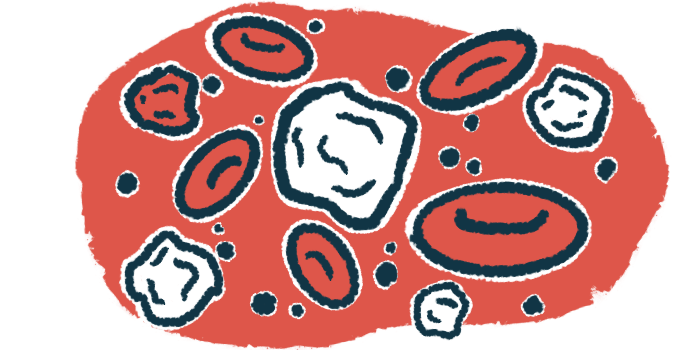CFTR modulators help enhance immune cell function: Study
Therapies boost power of macrophages, independent of CFTR defects
Written by |

CFTR modulator therapies can enhance the ability of certain immune cells to kill bacteria, independent of defects in the CFTR protein that cause cystic fibrosis (CF), according to a new study.
Specifically, these modulators alter metabolic processes to activate anti-bacterial processes within both CF and non-CF immune cells known as macrophages, experiments suggest.
The study, “Comparative effects of CFTR modulators on phagocytic, metabolic and inflammatory profiles of CF and nonCF macrophages,” was published in the journal Scientific Reports.
CF mutations lead to buildup of thick mucus in organs
CFTR is a channel protein that helps maintain water balance on cell surfaces by regulating the flow of chloride salt in and out of cells. In CF, inherited defects in CFTR disrupt water balance and lead to the buildup of thick mucus in various organs.
Mucus buildup in the lungs is associated with chronic infections, which can promote ongoing inflammatory immune responses and cause further lung damage.
However, whether altered immune responses and chronic lung infections are driven by mucus buildup or CFTR defects in immune cells themselves is still under debate.
Recent evidence suggests that immune monocyte cells isolated from CF patients produce fewer pro-inflammatory signaling molecules when exposed to CFTR modulators, a group of approved CF medicines that address CFTR defects.
Monocytes can also transform into another type of immune cell called macrophages. These cells are known to engulf and digest infectious microbes in a process called phagocytosis. However, the effect of CFTR modulators on macrophages has yet to be investigated.
Macrophages are ‘gatekeepers of the immune system in the lung’
“Macrophages serve as the gatekeepers of the immune system in the lung and investigating their response to CFTR modulators is therefore critical to understanding CF lung immunity more broadly,” wrote researchers based at the Dartmouth-Hitchcock Medical Center and the Geisel School of Medicine at Dartmouth College, in New Hampshire.
To address this gap, the team measured phagocytosis, metabolism, and immune signaling protein secretion in macrophages derived from monocytes isolated from CF patients in response to Pseudomonas aeruginosa. This bacteria species is frequently involved in serious lung infections in CF. Cells were also collected from individuals without CF as a comparison.
Macrophages were exposed to two CFTR modulators, tezacaftor and ivacaftor (TI), marketed as the combination medicine Symdeko in the U.S. and Symkevi in the EU and the U.K. Treatment significantly enhanced phagocytosis against P. aeruginosa compared with untreated controls.
Similar results were seen when cells were treated with the triple combination modulators — elexacaftor, tezacaftor, and ivacaftor (ETI) — sold as Trikafta. Both TI and ETI modulators had no effect on P. aeruginosa bacteria growth or ability to move.
While there was more variability among non-CF control measures, phagocytosis responses in macrophages to both modulators remained statistically significant over untreated controls, “suggesting that modulator effects may have been independent of CFTR mutation,” the researchers noted.
Mitochondria play key role in proper function of macrophages
Mitochondria — energy production centers of cells — play a vital role in the proper function of macrophages. Exposure to ETI, but not TI, suppressed the activity of mitochondria in both CF and non-CF cells, which was consistent with macrophage activation, according to the researchers.
“Presumably this is due to direct activity of the elexacaftor but the mechanism of inhibition is not currently clear,” they wrote.
Secretion of immune signaling proteins called cytokines was low in the absence of infection, with no impact by ETI and TI. P. aeruginosa infection triggered the production of many such cytokines in both CF and non-CF cells. Regardless, modulators had minimal effect on cytokine production, with only a non-significant increase with ETI.
“We have shown that CFTR modulators positively impact primary human macrophage phagocytosis in a surprisingly CFTR mutation agnostic fashion,” the researchers wrote, “which was associated with inhibition of mitochondrial function and without substantially altering cytokine secretion.”
“Our studies therefore suggest modulator induced metabolic effects may promote bacterial clearance in both CF and non-CF monocyte-derived macrophages,” they concluded.








